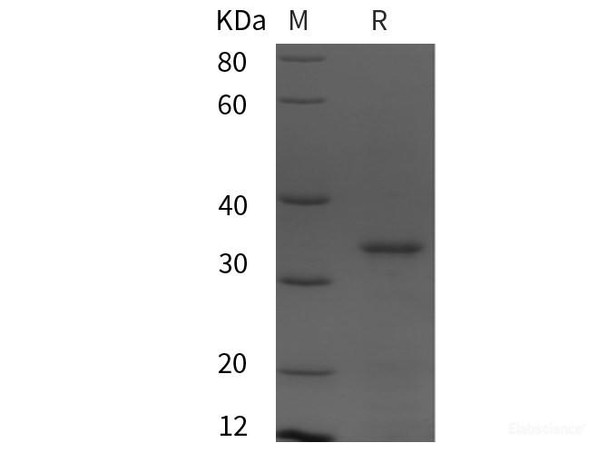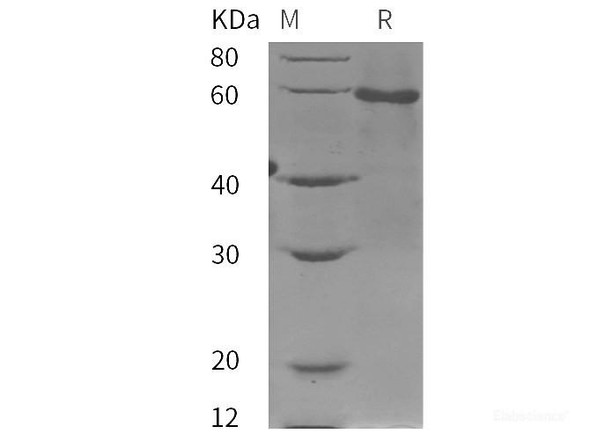| Sequence: | Ser447-Val554 |
| Accession: | P27106 |
| Storage: | Generally, lyophilized proteins are stable for up to 12 months when stored at -20 to -80°C. Reconstituted protein solution can be stored at 4-8°C for 2-7 days. Aliquots of reconstituted samples are stable at < -20°C for 3 months. |
| Shipping: | This product is provided as lyophilized powder which is shipped with ice packs. |
| Formulation: | Lyophilized from sterile PBS, pH 7.4. Normally 5 % - 8 % trehalose, mannitol and 0.01% Tween80 are added as protectants before lyophilization. Please refer to the specific buffer information in the printed manual. |
| Reconstitution: | Please refer to the printed manual for detailed information. |
| Background: | Anti-Mullerian hormone (AMH), a member of the TGF-beta superfamily, is produced by granulosa cells (GCs) of preantral and small antral follicles and plays a role in regulating the recruitment of primordial follicles and the FSH-dependent development of follicles. BMP15 up-regulates the transcription of AMH and that the inhibition of p38 MAPK decreases the BMP15-induced expression of AMH and SOX9, suggesting that BMP15 up-regulates the expression of AMH via the p38 MAPK signaling pathway, and this process involves the SOX9 transcription factor. AMH is widely used for assessing ovarian reserve, and it is particularly convenient, because it is thought to have minimal variability throughout the menstrual cycle. Fetal anti-Mullerian hormone (AMH) is responsible for normal male sexual differentiation, and circulating AMH is used as a marker of testicular tissue in newborns with disorders of sex development. Anti-Mullerian hormone (AMH) produced in the developing testis induces the regression of the Mullerian duct, which develops into the oviducts, uterus and upper vagina. As well as other hormone receptors, and a decreased ovarian cortex cell proliferation. These results help understand the inhibitory effects of AMH on follicular development. |






